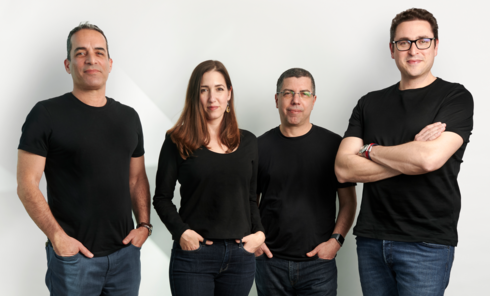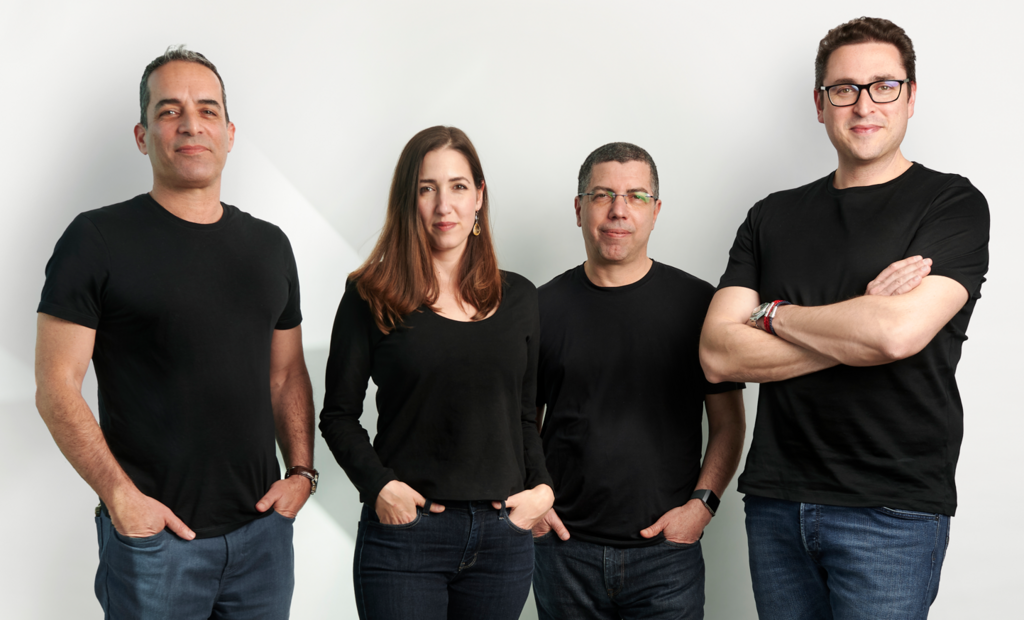
2024 VC Survey
“It is clear that the events of last year underscored the strong confidence in the resilience and tenacity of Israeli tech”
Arik Kleinstein, Co-Founder & Managing Partner at Glilot Capital Partners, joined CTech to share insights about the VC world in 2024.
“In the months following the start of the war, we witnessed a decrease in our seed stage deal flow,” said Arik Kleinstein, Co-Founder and Managing Partner at Glilot Capital Partners. “However, in recent weeks, we feel that we are almost back to the pre-war entrepreneurial sentiment.”
Kleinstein joined CTech to share how the VC space has bounced back after the attack in Israel on October 7. “Based on this observation, the growth of our portfolio, and the high level of interest by global investors in specific sectors of the Israeli market, we believe that the 2024 activity level will surpass that of 2023.”
VC fund ID
Name of the fund: Glilot Capital Partners
Total assets: $730M
Leading partners: Kobi Samboursky, Arik Kleinstein, Nofar Amikam, Lior Litwak
Latest investments in Israel: Guardz, Dec 2023
Selected portfolio companies: accessiBe, Seemplicity, LayerX, Cyolo, At-Bay, ScaleOps
From your perspective, was 2023 a ‘lost year’, or can the events that happened during it be seen as a springboard for opportunities in 2024?
2023 was not a lost year but a year of mixed results. Before the outbreak of the October 7th war, we observed limited positive global and local trends that are expected to continue to influence events into 2024.
The global technology market witnessed a surge of 32% in the Nasdaq Index significantly offsetting the decline in 2022. This rise was driven by the promising advancements in AI showcased through the launch of ChatGPT 4 in March 2023. This growth, alongside improved financial performances of numerous public companies, is expected to continue in 2024. In response to the new high-interest rate environment, companies adapted by cutting expenses and enhancing focus on efficiency and profitability resulting in successful outcomes.
On the private side, startups also continued their effort to improve efficiency and productivity to extend the period their balance sheets can support their operations. VC funds reduced their investment levels, prioritizing their focus on their existing portfolio companies. The appetite of institutional investors, which surged in their commitment to new funds in 2021, was lower in the following year, though an upward trajectory is expected for 2024 albeit not reaching previous peaks. Despite an overall decrease in M&A activity, certain verticals like cybersecurity maintained a rapid pace of acquisitions, persisting even after October 7th.
What do you believe is more crucial to the state of Israeli tech: the influence of global processes and the global economy, or the local events ranging from the political protest to the war state?
Israeli technology is primarily an export-driven industry, with 99% of its revenue coming from sales to the global market, and it is largely funded by global investors both directly or by foreign investors that invest in Israeli VC funds, Therefore, global trends, as witnessed in 2023, have a significant impact on the Israeli economy, particularly its tech sector.
However, it’s important to note that global investors and multinational companies do not operate in a vacuum and are sensitive to Israel’s geopolitical situation, especially during times of political unrest or conflict, such as in 2023 and obviously after the onset of the October 7th war. Looking ahead into 2024, it is clear that the events of last year underscored the strong confidence that many players in the global tech community have in the resilience and tenacity of Israeli tech.
Has the prestige of Israeli high-tech been damaged, or are the protests and the war merely a 'small bump in the road' from which the sector can recover within months?
The political protests definitely drew increasing attention over time as the political system failed to resolve its disputes, leading to larger demonstrations. While concerns arose, there was also an appreciation for the vibrancy of Israeli democracy. The war prompted widespread support from all players in the global tech industry: multinational companies, investors, and service providers.
How much effort was required of you to maintain the fund's status with your investors in 2023? What were their primary concerns and how did you address them?
We had a lot of support from our global investors. Full transparency was key to maintaining the confidence that is fundamental to the long-term relationships with our investors. We were transparent about the difficulties and challenges of the portfolio companies and also shared our efforts to deal with these challenges. When the war started we also supported the portfolio companies by sharing knowledge and practical tips between the founders. These mutual discussions proved to be very effective not just on the practical side but also emotionally. Overall, the support we got from our investors was heartwarming and encouraging.
How are you preparing for the most pessimistic scenarios, such as the continuation of the war in Gaza deep into 2024, the opening of another front in the north, or further reduction of government support for high-tech?
We know that the Israeli government launched some support programs for startups that are a step in the right direction. We are also hopeful that the government will encourage local institutional investors to continue to invest in the tech sector.
On the preparedness side, we are working with the portfolio companies to plan for potential adverse scenarios that include funding schemes and contingency plans for pessimistic scenarios. All of our portfolio companies are software companies that rely on public cloud infrastructure and hence can shift their activity to a work-from-home scenario.
Did you raise fund money in 2023 for an existing fund or a new one? What are your expectations regarding this matter for 2024?
We are currently in the process of raising funds for our second early growth fund and plan to close it during 2024. The feedback, based on our past performance, plans, and the opportunities within the Israeli market in our focus areas, has been positive. The interest in the Israeli market, especially in its leading fields such as Cybersecurity, is high.
How many investments did you make in 2023, and how does it compare to 2022?
2023: 18 investment ($50.3M)
2022: 23 investment ($103M)
In your view, will the amounts and/or the number of deals in 2024 be more like those of 2023 or 2021-22?
In the months following the start of the war, we witnessed a decrease in our seed stage deal flow. However, in recent weeks, we feel that we are almost back to the pre-war entrepreneurial sentiment. Based on this observation, the growth of our portfolio, and the high level of interest by global investors in specific sectors of the Israeli market, we believe that the 2024 activity level will surpass that of 2023. Several of our companies have already completed subsequent investment rounds, and we also expect some liquidity events.
Which high-tech sectors will you focus on in the upcoming year? Which areas will maintain their prominence, and which ones appear less attractive?
We believe that Cybersecurity and various applications of AI will continue to dominate the market. Having invested in Cybersecurity since 2011, with a significant track record of successful investments, we are confident that the Israeli market will continue to generate leading companies in this space.
Which type of companies stand a better chance of garnering increased attention from VC funds this year - early-stage or advanced rounds?
In 2024, the valuation levels and growth of the Israeli market will attract investors to both early-stage and growth-stage companies. From the investors' perspective, it's not about the stage of the company, but rather their belief in the long-term prospects of the company to emerge as a leader in its category.
What changes will you implement in your approach to evaluating investments in startups in the coming year, compared to the previous two years? What practices will you abandon, and what criteria will you now demand from founders?
We are planning to keep our investment criteria the same - as always, we will seek to invest in great teams working on cutting-edge technologies serving fast-growing markets.
Do you think it is likely we will witness encouraging IPOs, the emergence of unicorns, or remarkable exits in 2024?
As the market is turning around with the Nasdaq index getting close to its previous peak at 16,000, we will start to see more IPOs and significant acquisitions. However, I'm not sure it will occur in 2024. It is more probable in 2025 and, particularly, in 2026.
Provide an example of an intriguing investment you made in 2023. What sets this company apart, or what is distinctive about its sector?
Guardz. We invested in Guardz - a promising company addressing critical cybersecurity challenges faced by the extensive market of small and medium businesses, safeguarding themselves against malicious cyber attacks.
In the U.S., small and medium businesses represent about half of the economy. Presently, this significant sector relies on outdated technologies to protect itself against ransomware and other threats, and Guardz aims to revolutionize this approach.
Practical and current tips for founders planning upcoming money-raising efforts:
- Lead a category: In today’s market, the competition in the software industry is intense in almost every vertical and at all stages. Convince the investors that your company stands a chance to emerge as the leader of the pack.
- Be practical: The success of a startup is derived almost entirely from its execution capabilities, and in today's environment, it is not just about having the best product, R&D, and Go-to-Market teams, but also about orchestrating all activities practically and efficiently.
- Decide fast, act fast: Markets are super dynamic, particularly for Israeli companies, so expect the unexpected. Making timely, informed decisions quickly and acting on them swiftly is critical.
Name two portfolio companies that you think will thrive in 2024:
LayerX
Sector: Next-Gen Browser Security
Investment amount + total: Glilot invested $6M out of $7.6M total
Founders + year of establishment: Founded in mid-2022 by Or Eshed and David Vaisburd
Why is this their year?
With the surge in cyber threats, enterprises rely heavily on web browsers for various business operations, making them susceptible to attacks that could compromise sensitive corporate data. Moreover, the protection from sophisticated LLM-based threats and sensitive data leaking to GenAI products is gaining prominence to deceive users and hijack systems. LayerX’s technology is flexible and supports multiple use-cases without the need for a full enterprise browser. This strategic direction opens an array of wide use cases and dramatically lowers the friction in onboarding the technology.
ScaleOps
Sector: Cloud cost optimization
Investment amount + total: Glilot invested $4.5M out of $21.5M total
Founders + year of establishment: Founded in 2022 by Yodar Shafrir and Guy Baron
Why is this their year?
ScaleOps is poised for success because cloud environments are becoming increasingly complex to manage. With the static configurations of current systems unable to keep up with dynamic demand, there's a lot of wasted time and money. ScaleOps steps in with a smart solution: using AI to automatically handle resource management for each application, as it's needed. This means engineers can focus more on innovation, and companies can run their cloud applications smoothly and save money at the same time. ScaleOps is all about making cloud management easier and more efficient, which is why it's set to thrive in 2024.













